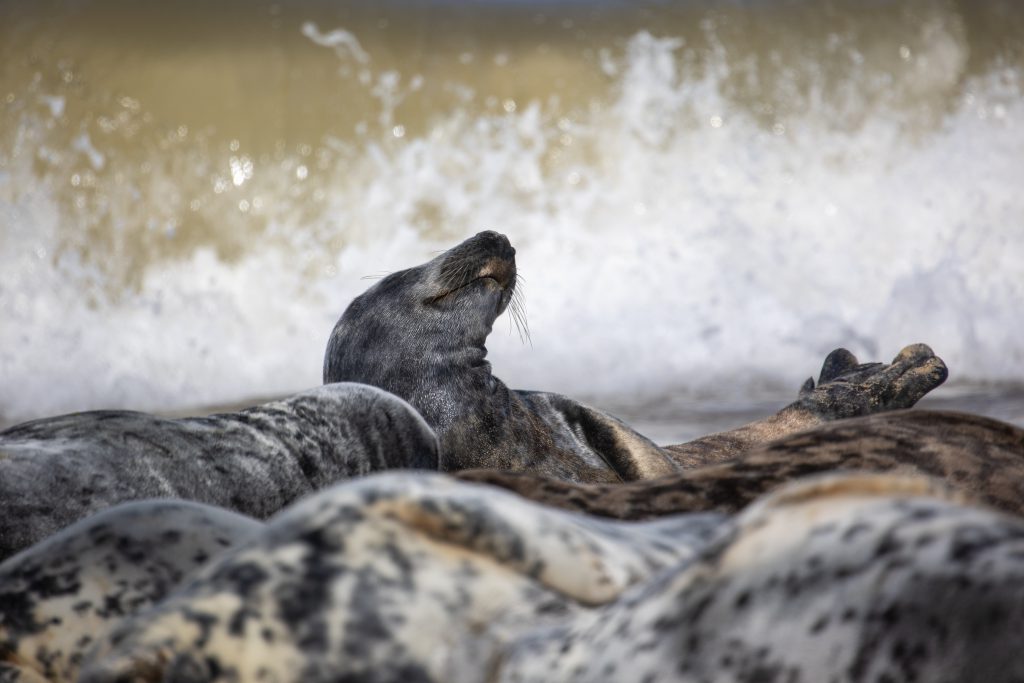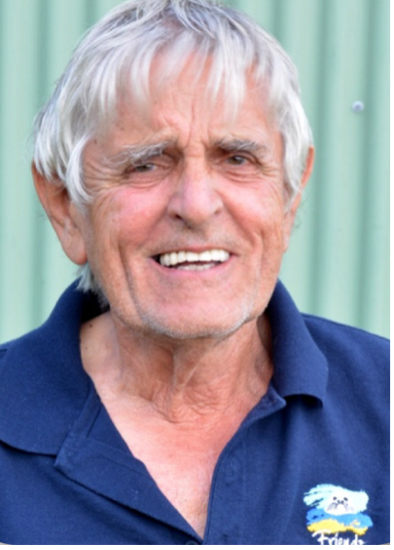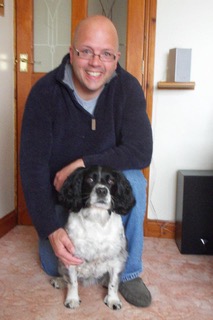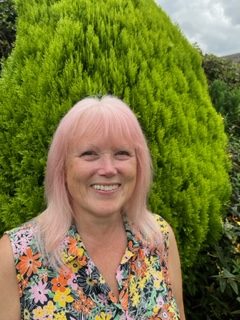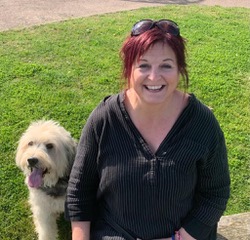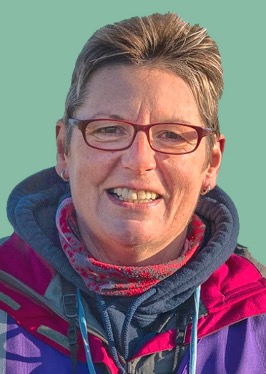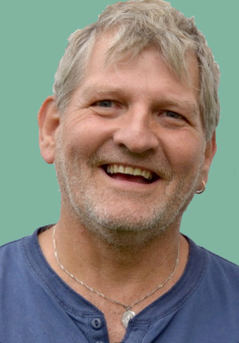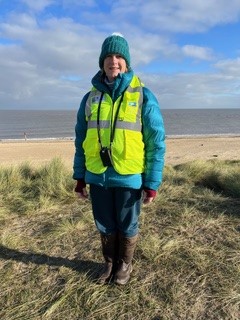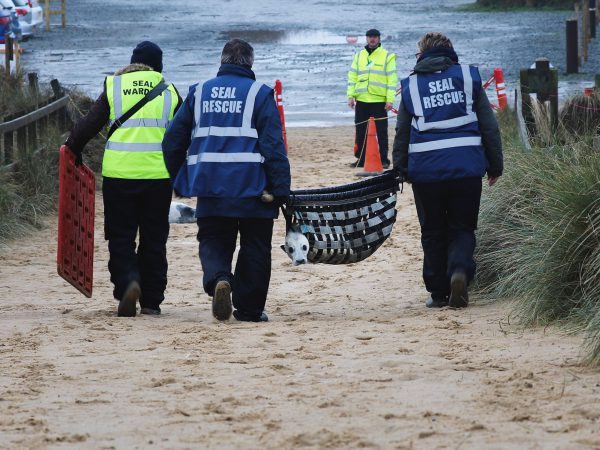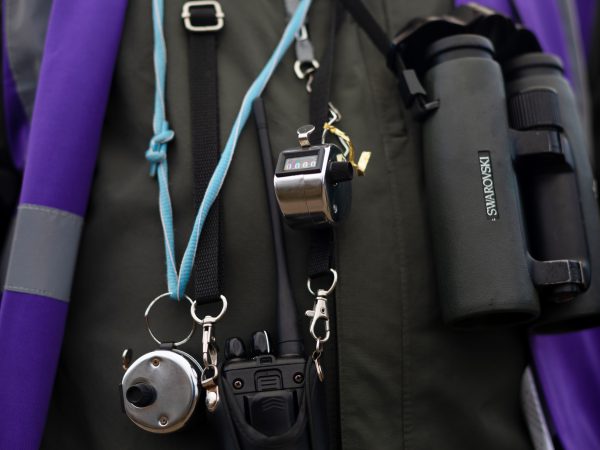Friends of Horsey Seals came into being when funding of the original project dried up in 2011. In 2003 Natural England had teamed up with the Broads Authority to give protection to a small group of Atlantic grey seals that had started to give birth on Horsey Beach.
Breeding success suffered from the lack of understanding that these shy creatures were easily spooked by the presence of humans. Local volunteers were recruited to ask visitors to keep their distance and the colony returned in greater numbers year on year.
Friends of Horsey seals has managed the project from 2012. Some of those early helpers, including Peter Ansell and Albert Ward, felt strongly that the work should continue. When asked, they agreed to take the project on. It was renamed Friends of Horsey Seals (FoHS). The number of births on Horsey beach had been steadily increasing each year and by that time had reached around 500 pups.
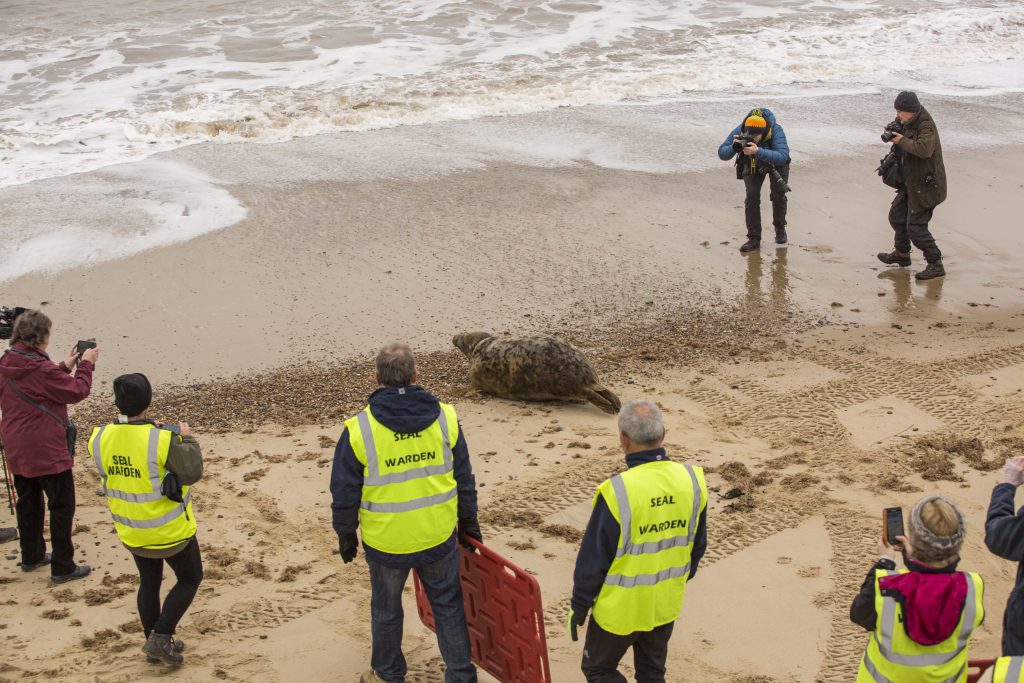
FoHS boosted the number of original volunteer wardens and introduced formal training for them. It proved a good decision. The growing number of pups being born each year at Horsey soon became something of a tourist attraction because the beach was so accessible.
The trained wardens made a real difference, not only to the safety of the seal colony but also by creating a positive experience for the people who came to see them. At the same time the FoHS seal rescue team officially came into being and was trained by the RSPCA. It still operates seven days a week, rescuing injured and distressed seals.
In 2016 FoHS became a registered charity (1169539).
Since then, we have continued to expand in response to the growing size of the seal colony thanks to the generosity and involvement of the community and the volunteers who give up their free time to warden.
We could not operate without subscriptions from the Friends scheme and support from our donors and sponsors. Local businesses help us acquire equipment and other essential items, landowners give us access and additional help and we work alongside partner agencies.
The seal colony now extends from Waxham to Winterton. In the 2020/2021 season 2,500 births were recorded, breaking all previous records and the colony continues to grow.
